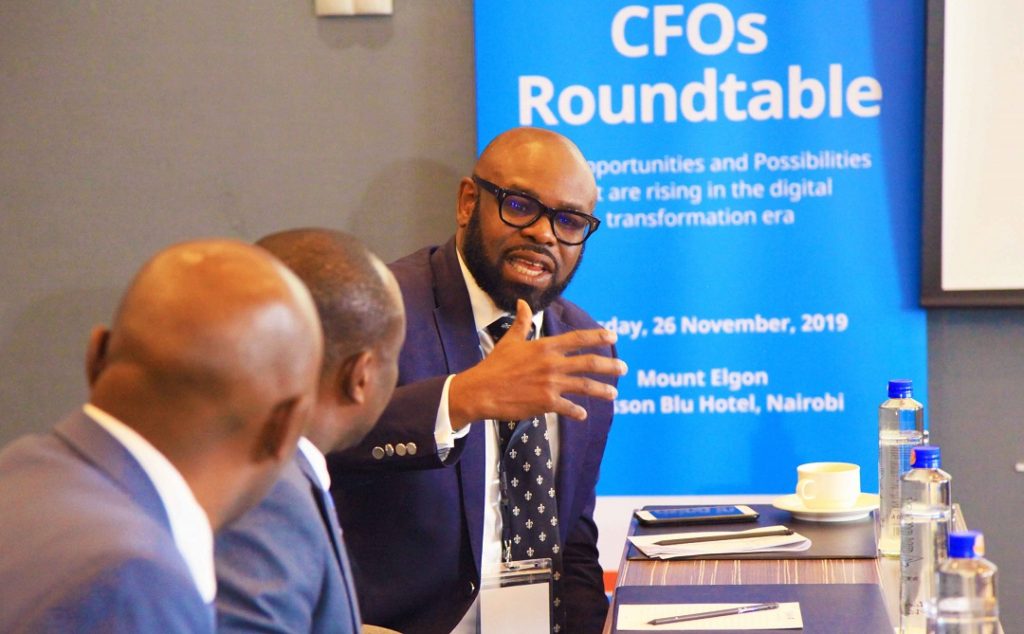In a move that reaffirmed the organizations commitment to streamlining and enabling digital transformation across various service industries, Microsoft in partnership with Harvard Business Review hosted a roundtable mainly targeted at Chief Financial Officers (CFO) and Chief Operations Officers (COO) working within various organizations with the aim of educating and highlighting how advanced technologies have presented unprecedented changes.
The event, one in a series of meetings organized with Harvard Business Review to Customers in the country, provided insights into how the role of these functions continues to evolve and how they are tasked driving corporate performance through the use of technology and setting the organizations strategic technology roadmap powered by data.
Geoffrey Mathare, Finance Lead for Enterprise Business for Microsoft North, West, East & Southern Africa, Levant & Pakistan countries noted that organisations must be acutely aware of the ‘uncomfortable’ shift in roles that has presented itself in the face of digital change. “The role of today’s CFOs and finance executives must take into consideration a much broader scope – requiring a heightened technological sophistication. The emergence of the digital age is fundamentally changing the priorities and roles of today’s finance executives, and security forms an integral part of this.”
While traditional roles that involve cost reduction and sourcing new revenue streams remain at the core of the CFO and COO function – exploring new opportunities for growth has emerged. This disruption has been enabled through the integration of advanced technologies such as artificial intelligence, mixed reality, blockchain and the cloud.
“However, like with all industries that exist today, challenges are inevitable and constantly present ‘bottlenecks’ for full potential output. The same can be said for the financial sector, where there are inadequate tools for anticipating expanding business complexities, processes are prone to error, threats, risks and ever-increasing regulation. All of these are major cause for concern,” continues Mathare.
Modern finance is now able to streamline, centralise and/ or outsource otherwise manual activities through robotic process automation (bots). This provides a mechanism to significantly reduce costs and errors while improving the quality and speed of internal processes. Similarly, machine learning is a critical tool for predicting outcomes and managing risk. Organisations can use this technology and solutions like Microsofts Cortana Intelligence Suite across the organisation to stay ahead of the curb internally.
In terms of risk management, organisations are also able to harness the power of the cloud to create early warning systems and tools that assist in proactively manage risk.
To remain competitive and foster an environment that is agile to the change brought about by digital transformation, finance executives must lead their companies to reach goals concerning growth, profitability and productivity. This is important as they implement advanced technologies like artificial intelligence and cloud.
“It was always exciting to connect with members of the C-suite. This allows us to tackle any questions and misconceptions that may be ‘blurring’ their potential to full digitally transform. By choosing to adopt innovative technologies, CFO’s and COO’s alike will strengthen organisational leadership, cultivating company growth through more efficient and productive allocation of resources, leading to stronger compliance. Microsoft is fully committed to accompanying them on this journey” concludes Mathare.

